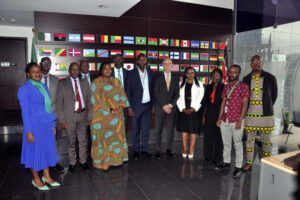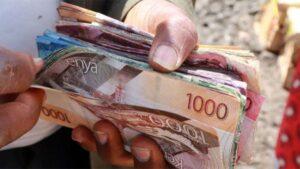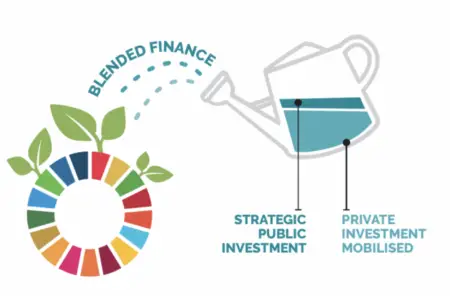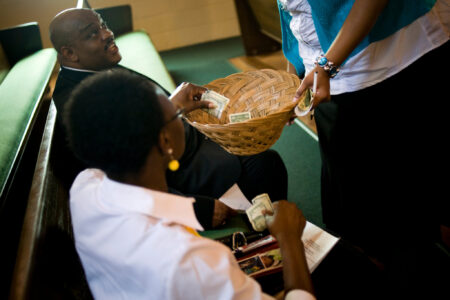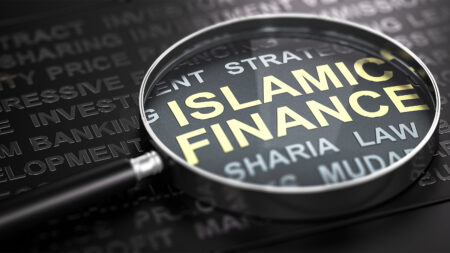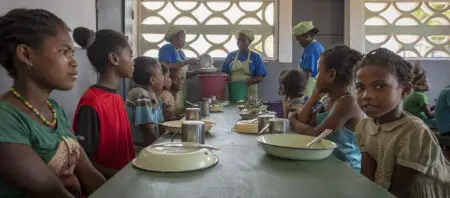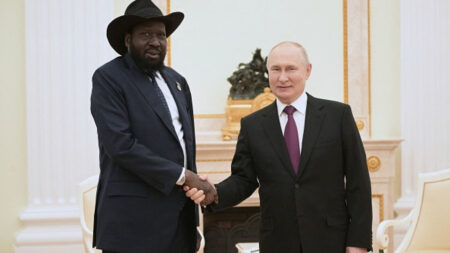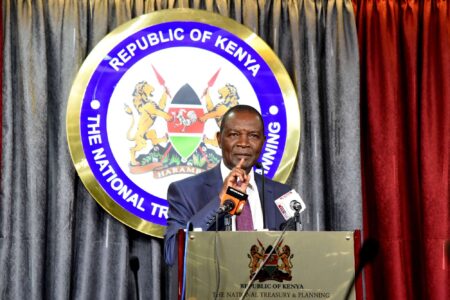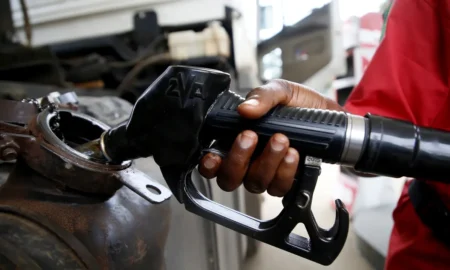- Kenyan Farmers Receive $2M Boost from Africa Fertiliser Financing Mechanism
- Brace for High Interest Rates for a Longer Period World Bank Warns Kenya
- Kenya-Ethiopia Trade Relations: Legislators Advocate for Policy Alignment to Boost Ties
- Visualising the state of debt in Africa 2024
- Abu Dhabi radiates optimism as over 300 startups join AIM Congress 2024
- TLcom Capital Raises $154 million in Funding to Boost Its African Growth
- Africa’s $824Bn debt, resource-backed opaque loans slowing growth — AfDB
- LB Investment brings $1.2 trillion portfolio display to AIM Congress spotlight
Browsing: premium
Africa’s oil and gas industry is entering a new era. The world is looking to fast-track its transition from fossil fuels. Consequently, this puts pressure on the continent’s oil and gas-producing nations. Most producing countries remain highly exposed to the global energy transition since their economies depend on oil and gas revenues. Similarly, their oil and gas reserves cost more to produce and, on average, remain more carbon-intensive than those from other regions.…
With its immense potential and vast resources, Africa stands at a critical point in its economic growth path. While the continent has promising economic prospects, it also has significant challenges that have impeded growth. A concept known as “blended finance” has gained popularity in recent years as a viable answer to assist governments in overcoming economic challenges. As a result, it is vital to look into what blended finance is, how African economies can leverage its benefits and its crucial role in supporting sustained growth across the continent.…
Africa is a continent of diverse religions, cultures, and intricate histories. Christianity is one of the major faiths that has shaped the lives and identities of millions of Africans. The continent has also evolved beyond its spiritual dimension to encompass a thriving business aspect.
Numerous churches and religious organizations have ventured into various economic activities, generating income and wielding significant influence. Consequently, some churches have become mega-churches with thousands of members and millions of dollars in revenue. They often own businesses such as schools, hospitals, media outlets, and real estate investments.…
- Uganda has issued first Islamic Banking License after a 20-year wait. On its part, Kenya has issued the first Islamic Bond to finance affordable housing agenda.
- The performance of Sukuk bonds in the continent is revealing untapped demand that could finance development projects.
- Estimates show global Islamic finance assets could reach $3.8 trillion by 2024.
Islamic Finance is on an exponential growth trajectory across Africa, garnering momentum by the day broadening the continent’s financial landscape. African countries are making significant steps towards bolstering access to shariah-compliant financial instruments and services, to cater to the largely financially, excluded Muslim population. This comes as figures from the Islamic Development Finance Corporation (IDFC), forecast that global Islamic Finance assets could reach $3.8 trillion by 2024.
Large swathes of African populace still remains unbanked, pertinently those shifting stance from the conventional system driven by their religious beliefs, thereby unlocking an untapped pool of investments.…
- Egypt and Nigeria markets remain the top targets of international hotel chains.
- New hotels’ pipeline in sub-Saharan Africa has gone up six per cent in 2022 (measured by rooms), whilst in North Africa the total has risen by four per cent.
- At the moment, the hotel chains have deals signed in 42 countries in Africa.
Africa remains a top investment destination by global hotel chains as brands pump in billions of dollars into putting up facilities in the continent, an industry survey now shows.
The African hotel chain development pipeline now totals 482 hotels with 84,427 rooms, the W-Hospitality Group report titled ‘Hotel Chain Development Pipeline Africa’, indicates.
This total was analysed initially according to two main regions, that is, North Africa where it looked at five countries – Morocco, Algeria, Tunisia, Libya, and Egypt, and sub-Saharan Africa (49 countries, including the Indian Ocean islands).
The pipeline in …
- ECOWAS member states fed 22.4 million school-going children in 2022, up from 20 million learners in 2020.
- This represents 42% of the 53 million school children in Sub-Saharan Africa who were fed through school feeding programs last year.
- School feeding intervention, as it happens in Rwanda, can immensely boost agriculture, education, health and nutrition, and social protection sectors.
The past two years have seen West African countries grapple with a number of crises driven by conflict, climate shocks, and a slow recovery from COVID-19 economic fallout worsened by the ongoing Russia-Ukraine war.
The Economic Community of West African States (ECOWAS) member States are, however, defying these tough economic times, emerging as having fed the largest number of school-aged children in Africa.
According to The 2022 State of School Feeding Worldwide report, Ecowas member states fed 22.4 million school-going children in 2022. This was an increase from 20 million children fed …
Last week, President Salva Kiir of South Sudan stepped into Moscow to meet his Russian counterpart, President Vladimir Putin. Their talks echoed the promise of an expanding relationship. However, an air of curiosity tinged the talks as the pair discussed energy, trade, and the ever-hot subject of security. In a secluded meeting that held the weight of geopolitics, Kiir and Putin’s dialogue not only spanned the customary diplomatic matters but also ventured into the depths of political and security concerns within South Sudan.…
The government has no option but to squeeze taxpayers further to raise revenues to meet budgetary obligations as the depreciating shilling worsens Kenya’s debt and economic struggles. This comes as the Kenyan shilling weakens against the US dollar and other major global currencies, pushing up the country’s spending on repayment. Kenya’s shilling has lost about 19 per cent of its value to the dollar year-to-date, exchanging at an average of KSh147.47 on Monday, September 25, 2023.
The weak currency has pushed the country’s public debt repayment bill by at least $4.67 billion (Sh690 billion) in the last eight months. Piling debt comes as the National Treasury went on a borrowing spree to bridge the budget deficit.…
The energy crisis gripping South Africa is set to intensify as rising global oil prices, coupled with a heavy dependency on oil imports, threatens to trigger economic fallout in the country. The expected announcement of fuel price increases for October, will put further strain on the country’s economy.
According to data from the Central Energy Fund (CEF), the Automobile Association (AA) has issued a stark warning to South Africans about the impending hit on the economy starting October.…
- Zimbabwe’s economic history has been turbulent with hyperinflation, currency devaluation, and a shortage of the Zimbabwean dollar.
- To cope with these challenges, Zimbabweans embraced digital payments.
- In H1 2023, digital payment values rose by 40%, with transaction volumes seeing a slight 4% decline.
- Mobile money services such as EcoCash, OneMoney, Innbucks, O’mari, and Telecash are now crucial for transactions in Zimbabwe.
For years, Zimbabwe has grappled with a severe shortage of physical currency. The nation’s economic turmoil commenced with hyperinflation, forcing the abandonment of its own currency in 2009. Instead, a mix of foreign currencies, primarily the US dollar, came in helping to steady the economy.
However, by 2015, the US dollar began vanishing from formal banks, resulting in a significant scarcity. Consequently, individuals and businesses started hoarding US dollars. The USD was considered a safe investment rather than a means of exchange.
Introduction of Bond Notes in Zimbabwe
To …
